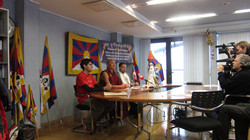Online resource provides insights into perceptions of populist ideas
This is the key legacy of the recently completed EU-funded MYPLACE project, which addressed issues of class, xenophobia, racism and trust in democratic processes. Online resources include free to access reports, videos and documentaries. A number of policy briefs are freely available. The third and final policy brief for example focuses on the project’s transnational findings and their implications for important European policy agendas. It found that the family plays a key role in maintaining historical memory. Furthermore, young people often – though not universally and sometimes with ambivalence – trust family accounts more than cultural sources or official representations. The research shows that historical narratives of the ‘difficult past’ remain influential in forming young people’s attitudes, values and activities today. The two previous policy briefs profiled the research being undertaken by the MYPLACE project and reported on country-based findings. The project also produced five documentary films targeted at students and researchers working on young people and political engagement. One of these films entitled ‘Not MyPlace – Bridging the gap between young people and politics’ explores some of the key findings on political participation with a group of young people who are active and engaged in local political issues and youth democracy. Further comment and insight is provided by elected politicians and practitioners. These films are designed to show potential policy implications through the reflections of young people and policy makers, and to suggest some constructive ways forward to address the challenges that the project’s findings present. The MYPLACE website also contains uploaded videos of various themed events. Working with non-academic partners including museums, galleries, and NGOs, the project team focused on the transmission of memory and political heritage in these ‘sites of memory’, and on intergenerational transmission. Project teams in the UK, Slovakia, Russia, Latvia and Portugal organised museum-based events in order to showcase and disseminate MYPLACE research. The results are available online. For example, there is a video of the project’s work at the Museum of the Occupation of Latvia. This historic educational institution located in Riga, Latvia, was opened in 1993 to exhibit artefacts, archive documents and to educate the public about the 51-year period in the 20th century when Latvia was occupied. The video features educational work with students and interactive activities. A full report of this event is also downloadable. The EUR 7.9 million MYPLACE project gathered first-hand data through focus groups, inter-generational interviews, surveys and case studies in order to map the relationship between political heritage, forms of civic and political engagement of young people and their potential receptivity to radical and populist political agendas. It involved partners from 14 countries and was officially completed in May 2015. For further information please visit: MYPLACE project website
Countries
United Kingdom



